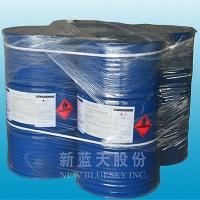-
Categories
-
Pharmaceutical Intermediates
-
Active Pharmaceutical Ingredients
-
Food Additives
- Industrial Coatings
- Agrochemicals
- Dyes and Pigments
- Surfactant
- Flavors and Fragrances
- Chemical Reagents
- Catalyst and Auxiliary
- Natural Products
- Inorganic Chemistry
-
Organic Chemistry
-
Biochemical Engineering
- Analytical Chemistry
-
Cosmetic Ingredient
- Water Treatment Chemical
-
Pharmaceutical Intermediates
Promotion
ECHEMI Mall
Wholesale
Weekly Price
Exhibition
News
-
Trade Service
Glass, oxide, and chemicals are three important components in the chemical industry.
These components are used in various applications, including glass manufacturing, ceramics, electronics, and pharmaceuticals.
In this article, we will discuss the synthetic routes of glass, oxide, and chemicals in the chemical industry.
Glass is a non-crystalline solid that is formed from a mixture of sand, soda, and lime.
The process of making glass involves melting these ingredients at high temperatures and cooling them rapidly to create a solid mass.
There are several synthetic routes for making glass, including the float glass process, which is the most common method used in the production of flat glass.
In the float glass process, a mixture of glass batch is floated on a bed of molten tin, and the resulting sheet of glass is cooled and annealed to remove any stresses.
Another synthetic route for making glass is the drawing process, which involves melting a small amount of glass in a crucible and withdrawing it slowly with a spinning machine.
This process produces thin, wavy glass ribbons that are used in the production of fiberglass and other reinforced plastics.
Oxides are compounds that contain oxygen and another element.
They are widely used in the chemical industry for various applications, including the production of glass, ceramics, and industrial chemicals.
There are several methods for producing oxides, including the wet method, which involves mixing a solution of the metal oxide with water and then precipitating the desired oxide with a flocculant.
Another method for producing oxides is the dry method, which involves heating the metal oxide with a reducing agent to form the oxide.
This method is commonly used for the production of transition metal oxides, such as copper oxide and iron oxide.
Chemicals are essential components in the production of many industrial and consumer products.
There are several methods for producing chemicals, including the batch process, the continuous process, and the flow process.
The batch process involves mixing the raw materials in a batch reactor and then separating the product from the reaction mixture.
The continuous process involves passing a stream of raw materials through a reactor, and the product is continuously removed from the reactor.
The flow process involves using a catalyst to catalyze the reaction, and the reaction products are continuously flowing through a reactor.
In conclusion, glass, oxide, and chemicals are important components in the chemical industry.
The synthetic routes for these components vary, and the choice of route depends on the desired application.
Understanding the synthetic routes of these components is essential for the effective production of industrial and consumer products.







